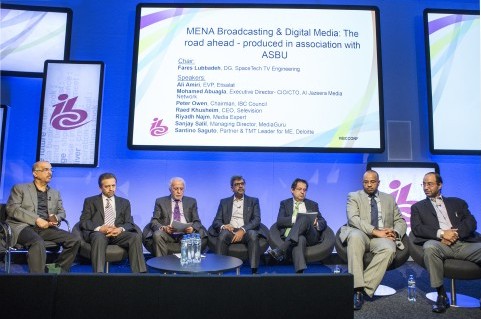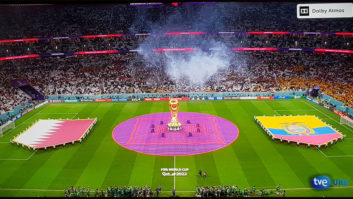
Many Middle East nations are still transmitting analogue TV, while those few which have adopted DTT are transmitting channels and programming “which nobody is watching”. So says Dr Riyadh Najm, the former head of Saudi Arabia’s state media authority.
Speaking at IBC on ‘MENA – The Road Ahead’ session, he called for more DTT channels to be carried, “and with programming that doesn’t replace satellite but which gives our nations the chance to obtain broadcast rights on a country-by-country basis.”
Dr Najm said that DTT is vital for the Gulf states. “I really believe there is room for DTT despite the huge number of satellite channels on air. Broadcasters are not making use of the spectrum that is allocated to them, while regulation of DTH transmissions is extremely difficult for individual countries.”
Dr Najm is also a former president of the Arab States Broadcasting Union, but said ASBU could not act as the region’s content regulator. He explained that five countries do exercise some control over broadcast media (Morocco, Saudi Arabia, Tunisia, Jordan and the UAE) but that more regulation is needed.
“We have about 1300 TV channels on satellite, and too many of them are controlled by or heavily influenced by special interest groups. This has led to chaos in the region as far as broadcast regulation is concerned.”




